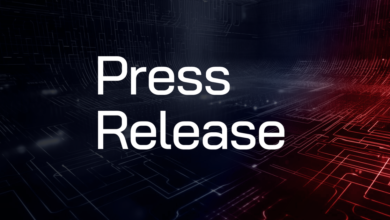Latest cybersecurity gamble a maple shield or digital dud?

Article content
As an American cybersecurity researcher keeping a watchful eye on Canada’s approach to digital security, I can’t help but feel a mix of skepticism and dread when I read about the country’s latest funding initiatives for cybersecurity.
Advertisement 2
Article content
It’s a tale all too familiar: Grand promises, substantial amounts of money, and that lingering doubt about whether this will lead to real, effective change or if we ultimately end up with an ice sculpture of Justin Trudeau instead of the robust digital defences Canada desperately needs.
Let’s start with recent reports that Canada’s government is ramping up its cybersecurity efforts.
They’re throwing a hefty sum at the problem, acknowledging that cyber threats are on the rise and that Canada’s existing defences are about as sturdy as a paper maple leaf in a snowstorm. The big question is: Will this money actually make a difference, or is it just another case of political posturing?
Meanwhile, over at Microsoft’s news site, there’s a rosy picture painted of Canada’s cybersecurity startups, which are apparently poised to save us all with the magic of artificial intelligence (AI). These young, scrappy tech companies are our knight in shining digital armour, working on solutions to keep our data safe from cybercriminals. It’s a lovely thought, but forgive me if I’m a tad skeptical about how well this is all going to pan out.
Article content
Advertisement 3
Article content
Firstly, let’s address the elephant in the room: government spending. Historically, the Trudeau government has a knack for turning golden opportunities into bureaucratic nightmares. Think of the Phoenix payroll system fiasco. It was supposed to streamline payments for federal employees, but instead turned into a national joke, with thousands of employees either not getting paid or being overpaid. Now, we’re entrusting these same folks to safeguard our digital frontier?
Here’s the thing about cybersecurity: It’s not just about throwing money at the problem, it’s about investing wisely, hiring the right talent and maintaining a level of flexibility to adapt to ever-evolving threats. We need a system that’s proactive and not reactive. Government agencies aren’t exactly known for their agility.
Advertisement 4
Article content
On the private sector side, there’s a lot of buzz about AI-powered solutions. Don’t get me wrong, AI is fascinating and full of potential.
But let’s not pretend it’s a silver bullet. AI systems require massive amounts of data to train effectively, but guess what? They can still be fooled. This is one of the reasons why Elon Musk has called for governments to more closely regulate AI tech as hackers are constantly evolving their tactics, and AI, as smart as it is, can end up being just one step behind.
Moreover, the reliance on AI brings its own set of problems. AI is only as good as the data it’s trained on and the algorithms behind it. If we’re not careful, we could end up with AI systems that are biased, flawed, or worse — vulnerable to manipulation. Remember the Tay chatbot from Microsoft that turned into a PR disaster in less than 24 hours? Yeah, that’s what happens when AI goes wrong. Now imagine that in the context of national cybersecurity. Especially as an increasing number of cybercriminals are themselves leaning more and more on AI.
Advertisement 5
Article content
Let’s also talk about the startups. It’s fantastic to see innovation and entrepreneurship thriving in Canada, but startups are inherently risky. Many don’t survive past their first few years. Betting Canada’s national cybersecurity on a handful of fledgling companies feels a bit like putting all the eggs in an untested, high-tech basket. What happens if these startups go under or their technology fails to deliver?
Then there’s the issue of scale. Startups might have brilliant ideas, but scaling those solutions to protect an entire nation is another beast entirely. It’s one thing to secure a small business or even a large corporation, but safeguarding government infrastructure, health-care systems, financial institutions, and critical utilities is a monumental task.
Advertisement 6
Article content
So, what’s the potential fallout if the Canadian government doesn’t get this right?
Well, the stakes are higher than just a few embarrassing data breaches. In a worst-case scenario, we’re looking at the disruption of essential services — think hospitals unable to access patient records, financial systems crashing, and power grids going dark. Not to mention the erosion of public trust in our institutions, which is already on shaky ground. Imagine the chaos if an AI-powered cyberattack managed to disrupt upcoming federal elections in Canada or the U.S. Or consider the economic impact if major banks were crippled by a cyber heist. We’re talking about potential damage in the billions, not to mention the long-term reputational hit.
Advertisement 7
Article content
And let’s not forget privacy. Canadians are justifiably concerned about how their personal data is used and protected. If cybersecurity measures are inadequate, it’s not just government and corporate data at risk — it’s private information, too. Identity theft, financial fraud and personal data breaches have increased exponentially as a result of password phishing scams and fast-spreading Botnet attacks.
Recommended from Editorial
While it’s heartening to see both the government and private sector stepping up their cybersecurity game, Canada needs to remain vigilant. It’s crucial that any funds allocated are spent wisely and that it’s not just a chase after shiny new technologies without understanding their limitations and risks. Canadians should demand transparency and accountability in how these resources are used.
As an American looking in, I see the potential for great success, but also the possibility of significant missteps. So, when it comes to protecting Canada’s digital assets, it’s time to be assertive and strategic. Otherwise, the great Canadian cybersecurity push of 2024 may potentially end up as just another costly boondoggle, leaving my northern neighbours cold, vulnerable and asking, “What the heck happened, eh?”
— Julio Rivera is a business and political strategist, cybersecurity researcher, founder of RivITMedia.Com, and a political commentator and columnist.
Article content





